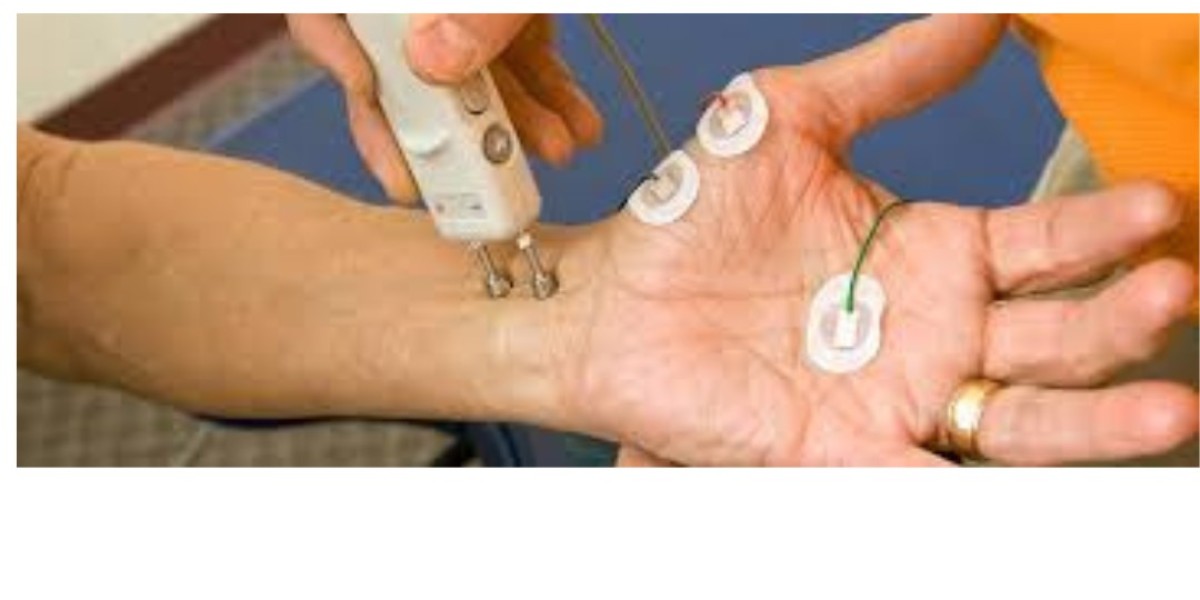NCV Blood Test: Everything You Need to Know
Understanding medical tests can feel overwhelming, especially when doctors recommend one you’ve never heard of before. One such test that often raises questions is the ncv blood test. This diagnostic procedure plays a vital role in detecting various conditions, and learning about it can help you feel more prepared before undergoing it.
If you’re based in Bangalore and looking for more details, you can explore this ncv blood test service, which provides insights and booking options. Having a reliable diagnostic center ensures accurate results and peace of mind when it comes to your health.
What Is the NCV Test?
The NCV test, also known as a Nerve Conduction Velocity test, measures how quickly electrical signals move through your nerves. It’s often prescribed when patients experience numbness, tingling, unexplained muscle weakness, or nerve pain. While it’s commonly confused with a simple blood test, the NCV is actually a neurological test that evaluates nerve health and function.
Why Doctors Recommend This Test
Doctors may order the NCV test if they suspect:
Peripheral neuropathy (common in people with diabetes)
Carpal tunnel syndrome
Pinched nerves due to injury
Neuromuscular disorders
Chronic pain in arms or legs
By measuring electrical activity, the test helps specialists detect nerve damage or blockages that could be causing discomfort.
The Procedure: What to Expect
The procedure is generally straightforward and not overly painful. Small electrodes are placed on your skin over the nerve being tested. Mild electrical impulses are sent to stimulate the nerve, and the response time is recorded.
Step-by-Step Process
Preparation – The doctor cleans and marks the skin where electrodes will be placed.
Electrode Placement – Surface electrodes are attached to the nerve region.
Nerve Stimulation – A mild electrical current is applied, causing a brief tingling or twitch.
Data Collection – The response speed and strength are recorded by a machine.
Analysis – Results are compared with normal values to identify potential nerve problems.
The test usually takes between 30–60 minutes depending on the number of nerves being examined.
Is It Painful or Risky?
Most patients describe the sensation as mild discomfort rather than pain. The electrical impulses may feel like small zaps, but they are safe and temporary. Unlike other diagnostic procedures, the NCV test is non-invasive and carries minimal risks. Rarely, some people may notice slight redness or irritation at electrode sites, which fades quickly.
Preparing for the Test
Here are a few simple steps to make the process smoother:
Avoid lotions, creams, or oils on your skin before the test.
Inform your doctor if you have a pacemaker or implanted medical devices.
Wear loose clothing for easy electrode placement.
Your doctor may also pair the NCV with an Electromyography (EMG) test for more detailed insights.
How to Interpret Results
After the test, the neurologist reviews the conduction speed and strength of your nerves.
Normal Results: Signals travel quickly and consistently.
Abnormal Results: Delays or weak responses may indicate nerve damage, compression, or diseases like neuropathy.
Interpretation should always be done by a qualified medical professional who considers your symptoms, medical history, and additional test results.
Benefits of the Test
Quick and relatively painless
Helps diagnose a wide range of conditions
Provides accurate information on nerve health
Essential for early detection and treatment planning
Final Thoughts
The ncv blood test is an important diagnostic tool for understanding nerve health. Whether you’re dealing with unexplained numbness, weakness, or nerve pain, this test provides clarity and direction for treatment. With early detection, doctors can design better treatment strategies, improving both comfort and long-term health outcomes.
Frequently Asked Questions (FAQs)
1. What does a nerve conduction velocity test check for?
It measures how quickly electrical signals move through nerves, helping detect damage or dysfunction.
2. How long does a nerve conduction test take?
Typically, it lasts between 30 minutes to an hour, depending on the number of nerves tested.
3. Can this test diagnose carpal tunnel syndrome?
Yes, it is one of the standard diagnostic tools for confirming carpal tunnel syndrome.
4. Do I need to fast before the procedure?
No fasting is required. You can eat and drink normally before the test.
5. Is the test safe for people with heart conditions?
Generally, it’s safe, but you should inform your doctor if you have a pacemaker or heart condition.
6. Will I feel pain during the test?
You may feel mild tingling or zapping sensations, but it’s usually tolerable and not considered painful.
7. Can children undergo this test?
Yes, children can undergo the procedure if prescribed by a neurologist, though doctors may adjust the approach for comfort.
8. Is there any recovery time needed after the test?
No recovery time is required; you can resume normal activities immediately.
9. How accurate are the results of this test?
The test is highly reliable when conducted in a certified diagnostic center with proper equipment.
10. Can lifestyle factors affect nerve health?
Yes, factors such as uncontrolled diabetes, excessive alcohol use, poor nutrition, and injuries can affect nerve function.








